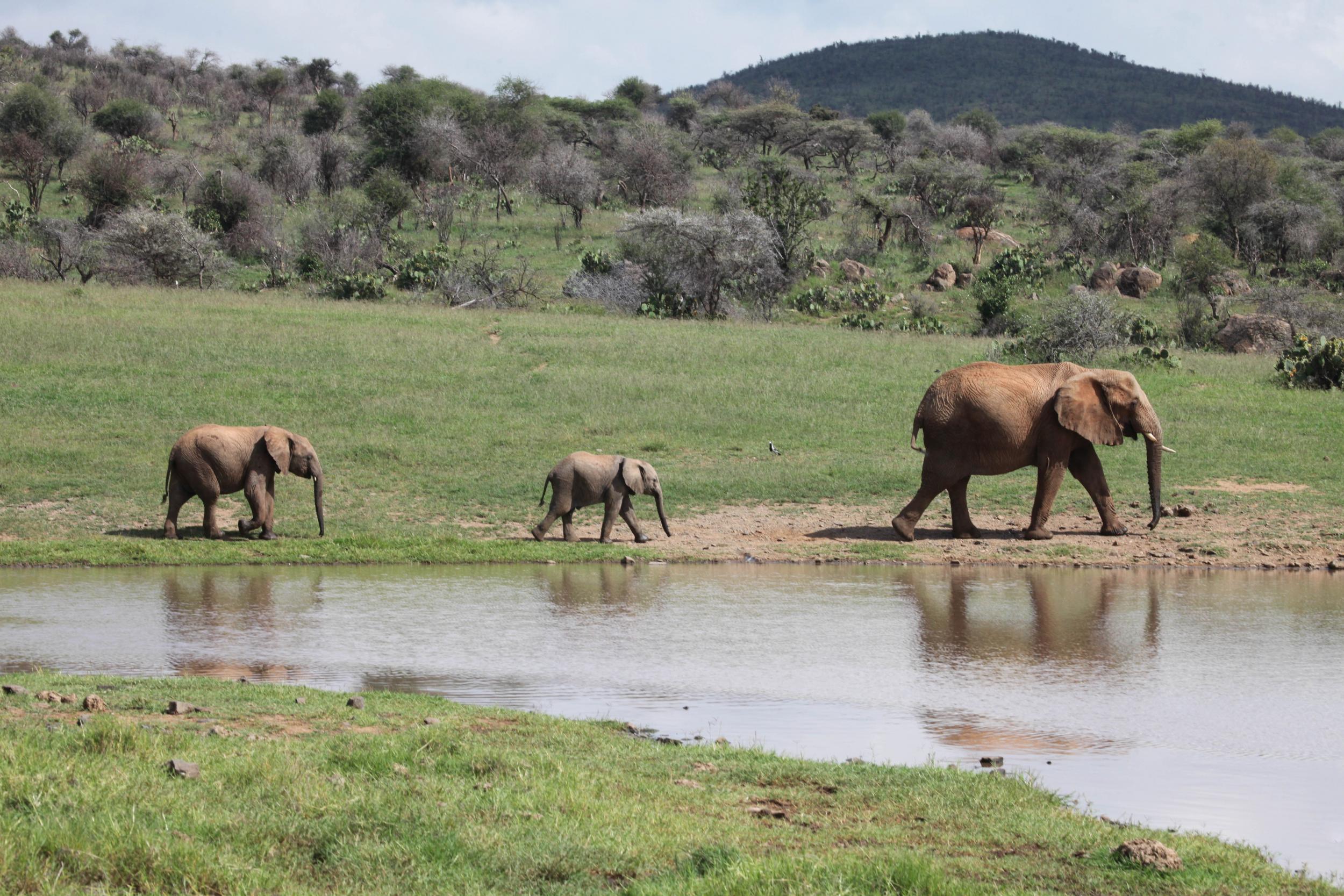Push to sell ivory stockpiles new threat in wildlife conservation
Four southern African countries want to reopen the trade in ivory, but that could spell disaster for conservation in east and central Africa

By Jeckonia Otieno in The Standard in Kenya
The recently concluded AU-UN Africa Wildlife Economy Summit in Victoria Falls, Zimbabwe, was a miss on many fronts. From domination by Southern Africa states, Zimbabwe, Zambia, Botswana and Namibia, the event turned out to be a mere talk shop.
Most outstanding, however, is the fact that the four nations used the opportunity to drive their agenda, which is sale of ivory stockpiles. Southern Africa is home to nearly half of Africa’s elephants and this makes it a major stakeholder in wildlife conservation.
But this does not diminish the role of Kenya and other East African countries. From the outset, President Emerson Mnangagwa of Zimbabwe was clear on why he wants his country to be allowed to sell its stockpiles worth 60 billion Kenyan Shilling. His argument was that Zimbabwe wants to put the money into conservation.
Mnangagwa plans to table the request before the upcoming 18th meeting of the Conference of Parties (COP) in August for consideration by the Convention on International Trade in Endangered Species of Wild Fauna and Flora (CITES). Interestingly, no formal opposition from Kenya and her neighbours was raised against Zimbabwe’s push save for fragmented voices from non-governmental conservation organisations.
Kenya, and East Africa at large, has everything to lose if some of these proposals go through. Conservationists argue that allowing the sale of ivory and rhino horns is disastrous for the animals.
Conservationists are of the view that elephants cannot die fast enough to sustain such a sale and this could only mean that to sustain the market, elephants and rhinos must be killed.
Also, it must not be lost that in raising this issue, Zimbabwe marshalled support from its neighbours, with only Angola expressing a different opinion due to its scant elephant population; a result of the civil war. Four presidents attended the summit; East Africa had none.
Second, it was clear that East Africa could not speak with one voice. In a press briefing by President Mnangagwa, journalists from Southern Africa could not hide their amazement at how six journalists from Kenya and Uganda put up a fight for the wildlife, asking probing questions on what the intended application means. The East African nations lacked a clear united front to air their views.
However, there was a mutual feeling that government officials from the two East African countries remained largely unapproachable and somehow cold towards the media. Figures from the Kenya Wildlife Service show that there was a drop by almost half in poaching in Kenya last year, compared to the previous year. Should these gains be left to fate in light of the threat from Southern Africa?
Third, despite it being a high profile meeting convened by the AU and UN Environment, it is disturbing that there were no concrete resolutions that can be carried forward. However, some specific organisations have to be lauded. For instance, Kenyan-based Space for Giants unveiled a study showing that private sector engagement is critical in earning more from wildlife and tourism.
The report, Building a Wildlife Economy: Developing Nature-Based Tourism in African State Protected Areas, seeks to show that governments working in partnership with private sector in underfunded conservation areas could yield more income to both local communities and governments.
Bearing in mind that in Kenya, government focus is mainly in gazetted parks and reserves, communities left in areas where there are wildlife face a higher potential risk of human-wildlife conflict.
All is not lost as Kenya can still argue against the proposal which clearly puts our wildlife in danger. Without this, we may soon be wondering where the rain started beating us – when heightened poaching activities hit us again, especially if Southern Africa countries have their way.
The Kenyan government needs to be in constant liaison with its partners in conservation in order to ensure that some of these decisions that pose existential threats to our heritage are not given room to sprout.
While Southern Africa countries have every right over the ivory stockpiles in their possession, they must be reminded that the long wildlife corridor stretching from Northern Kenya stretches through Tanzania in series of protected areas and conservancies which in essence means that these giants cannot, should not and must not be confined in man-made ‘islands’ within the continent.

This article is reproduced here as part of the Giants Club African Conservation Journalism Fellowships, a programme of the charity Space for Giants and supported by the owner of ESI Media, which includes independent.co.uk. It aims to expand the reach of conservation and environmental journalism in Africa, and bring more African voices into the international conservation debate. Read the original story here.
Join our commenting forum
Join thought-provoking conversations, follow other Independent readers and see their replies
Comments
Bookmark popover
Removed from bookmarks